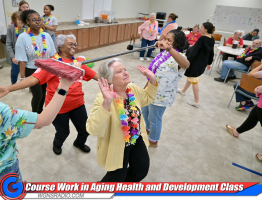Every year around this time there will be a slew of articles in various publications knowingly attempting to debunk the myth that cold weather or being exposed to cold weather is responsible for the increase in colds and flu.
It seems we all like to feel a little smug thinking we know something that the average population doesn't. And we all like to be “in the club” of the knowing if there is a sizable portion of the population that appears to be in the group that believes something to be true when we can smugly point to an article that contradicts the belief.
In short we all like feeling a little bit superior, and we can enjoy that fleeting moment of superiority by reading (or writing) an article that points out some flaws in the belief system of average people, present company excepted.
The articles usually start this way: “Many people seem to persist in their belief that cold weather causes the incidence of colds and flu to increase.”
Well, this is actually true. The incidence of colds and flu increase throughout the world in each hemisphere as the cold weather season cycles through.
The next part of the article usually goes on to suggest that it is not actually the cold weather that causes the increase of the viral illness to peak, but rather alterations in human behavior.
The fact that kids begin school in the fall and let out in the summer is brought up. It is also mentioned that people spend more time indoors during cold weather. The next assumption is that because people are naturally in close proximity as a result of these two seasonal changes in human behavior, the physical closeness of large groups of people is responsible for the increase in the number of respiratory viral illness.
Feeling smug yet?
Surely you are not one of those people that still believes that getting your feet cold or wet causes illness are you?
Interestingly, there is actually a published article in the medical journal Family Practice that revealed that 10% of subjects that were exposed to foot chilling subsequently developed cold symptoms within 4-5 days. This finding was approximately double the amount of control subjects that developed similar symptoms during the time of the study.
This single study does not prove anything about the cause and effect of cold illness. But it does suggest that maybe the whole notion of exposure to cold should not be tossed out completely.
The article mentioned above was published originally in 2005.
About a decade ago, in 2003, the New York Times ran an article that recounted research conducted by famed Louis Pasteur in which he subjected chickens to cold and wet conditions then subsequently exposed them to anthrax. In these small studies Pasteur found that the chicken exposed to the dunking into cold water died, whereas one that similarly immersed but later warmed with a blanket survived.
In the same NY Times article a study involving American soldiers found that troops subjected to sleeping in cold, damp outdoor trenches sustained four times the number of colds as those sleeping in warm, dry barracks.
However, multiple studies have findings that demonstrate no greater incidence of cold illness in circumstances where exposure to cold is the only variable. Most contemporary epidemiological experts have concluded that exposure to cold has no effect on whether a person sustains the viral cold illness.
So why would the subjects subjected to “foot chilling” in the first study be twice as likely to have cold symptoms? It is also noteworthy that the same subjects reported a higher incidence of cold symptoms in other circumstances than the controls.
Maybe some people are affected by exposure to cold while others are not.
Just in case, cold weather is here to stay for a while, better bundle up. And keep washing those hands!












